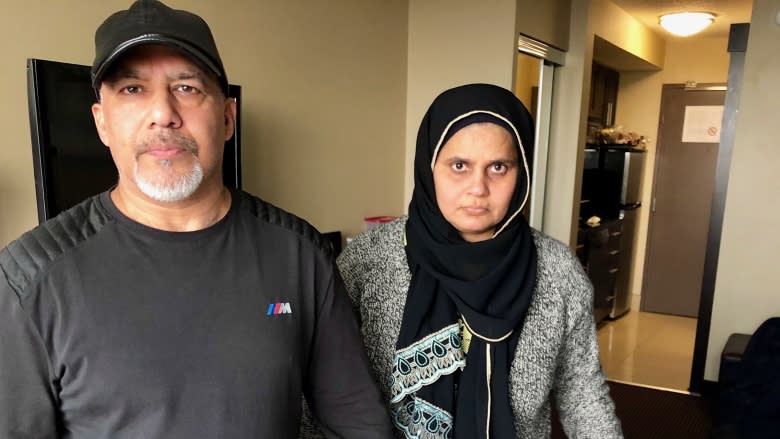Government hotel tab for flood victims hits $10M — and counting
The Quebec government has spent more than $10.3 million on hotel rooms for people displaced by the 2017 spring floods, and some who lived in those rooms say the money should have gone to help them rebuild instead.
"I mean this is money wasted. It's incredible," said Tauseef Bhatti, who spent nearly eight months at the Holiday Inn in Pointe-Claire with his family of six.
"They could have done so much with that money."
Flood victims have been complaining for months that the Ministry of Public Security's aid program, which determines if flood-damaged homes can be repaired or not, is overly complex, inconsistent and slow in paying compensation.
In contrast, they say the ministry seems to have no shortage of money to spend on hotel rooms and meal allowances.
"The government pays for this instead of giving us our money faster," said Line Vallée. She and her husband are one of 44 families still living in hotels at the government's expense.
A total of 1,210 families received temporary lodging assistance, which is paid for by the province and administered by the Red Cross.
'Like we got out of prison'
The Bhattis were one of those families until three days ago.
Tauseef, his wife Weena and their four children had been sandwiched into two rooms at the Holiday Inn since late August 2017.
The family has been waiting on a final decision from the government on whether they can go ahead and fix their flood-damaged home on Île Bizard.
As the process dragged on, what they thought would be a short stay ended up lasting eight months.
The Public Security Ministry doesn't comment on specific files, but the Red Cross estimates the average cost of rooms at $120 per night. At that rate, the Battis' bill for such a long stay would have exceeded $55,000.
On Monday, the Red Cross moved the family into a two-storey row house on Hymus Boulevard in Kirkland, and although the arrangement is temporary, Bhatti says it's been a huge morale boost, especially for his kids.
"That was the feeling, like we got out of prison," he said.
Bhatti just wonders why it couldn't have happened sooner, considering the rent on the house would have been a fraction of the cost of their hotel stay.
He says when he asked the Red Cross last June about staying in apartment instead of a hotel, officials said it wasn't an option.
The Red Cross said it runs the temporary lodging program under the Public Security Ministry's directives.
The ministry says it's up to the Red Cross to find lodging for flood victims, cover the bill and then claim those costs from the government. It says the Red Cross does negotiate reduced rates at certain hotels, but it depends on availability and the season.
It also says the 44 families still in hotels have not all been there continuously since the flooding began. Some are there now, while their houses are being repaired.
At the peak last summer, there were more than 1,000 families in hotels. The vast majority have since moved out.
Under pressure to check out soon
Vallée says she's certainly feeling the pressure from the government to move out of the Holiday Inn in Vaudreuil, where she's been staying since last September.
Her Pointe-Fortune house and riverfront snack bar were so badly damaged by flooding, they were deemed too far gone to fix.
She's still waiting for the government to settle her file so she can get back in business.
Vallée says the Red Cross told her Monday she has to leave the hotel by May 4, whether or not her compensation claim is settled.
"They take months to try to resolve a case, and they can't answer our questions," she said. "But when they decide it's time for us to go it's, 'OK, see you later.'"
Vallée says she, too, would have preferred to be put up in an apartment but decided against it because it offered no meal allowance. She says she gets $30 a day for food as long as she's at the hotel.
"Given the fact we had lost our business we'd rather go to a place where they gave us money for food," Vallée said.
She says she wishes the government had been as easy with the compensation funds as they were with temporary food and lodging.
"We always said instead of putting the money there, just give us our compensation more quickly, and we'll sort out our own affairs."
As of last month, the provincial government had paid $148,440,545.38 in total compensation to flood victims, but only one quarter of all files had been closed.





